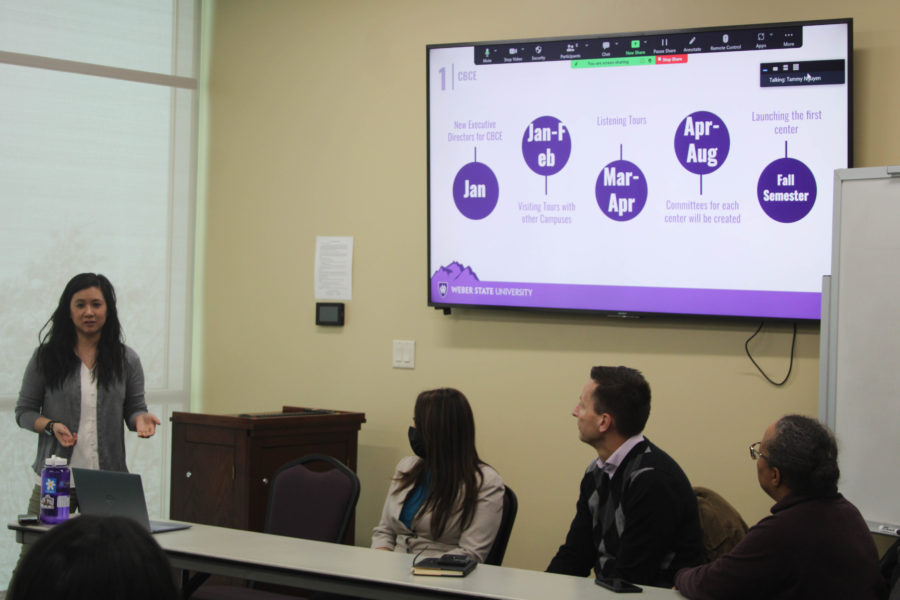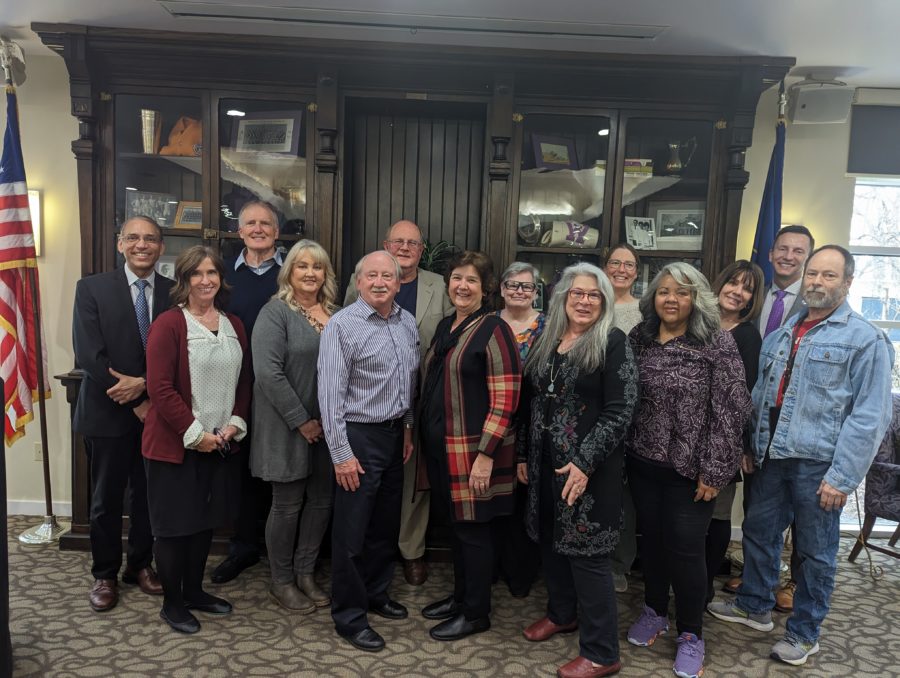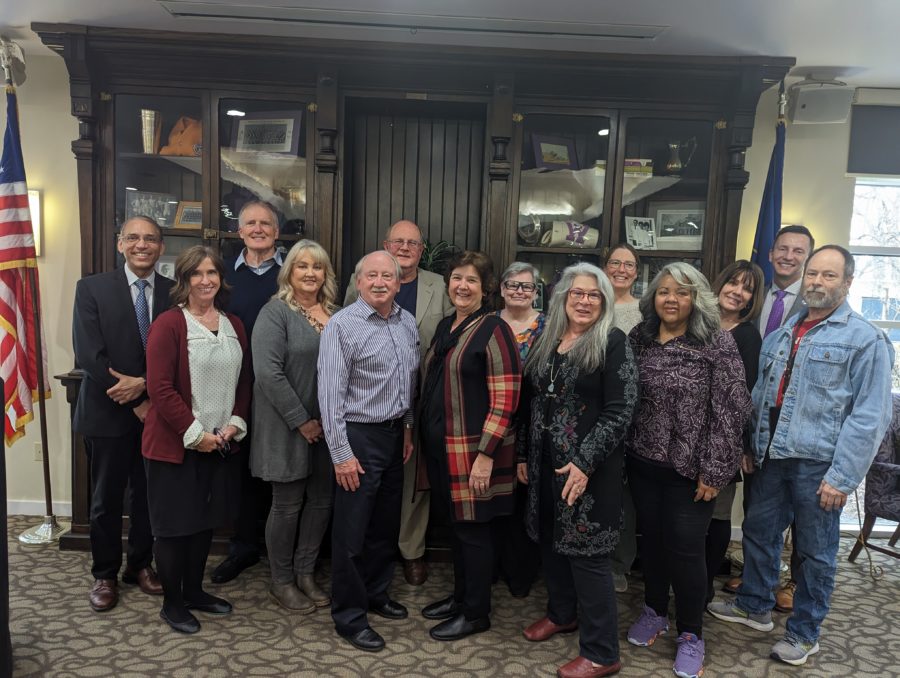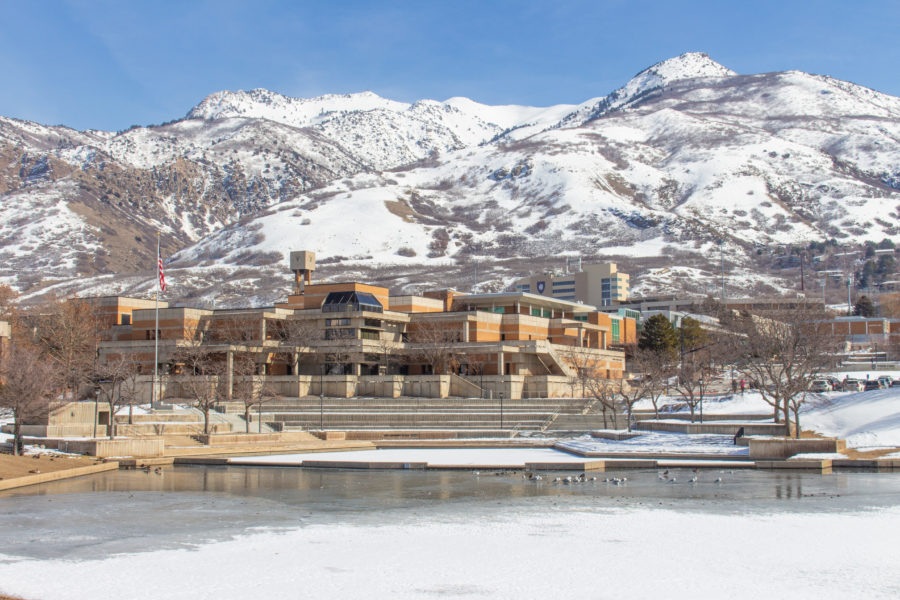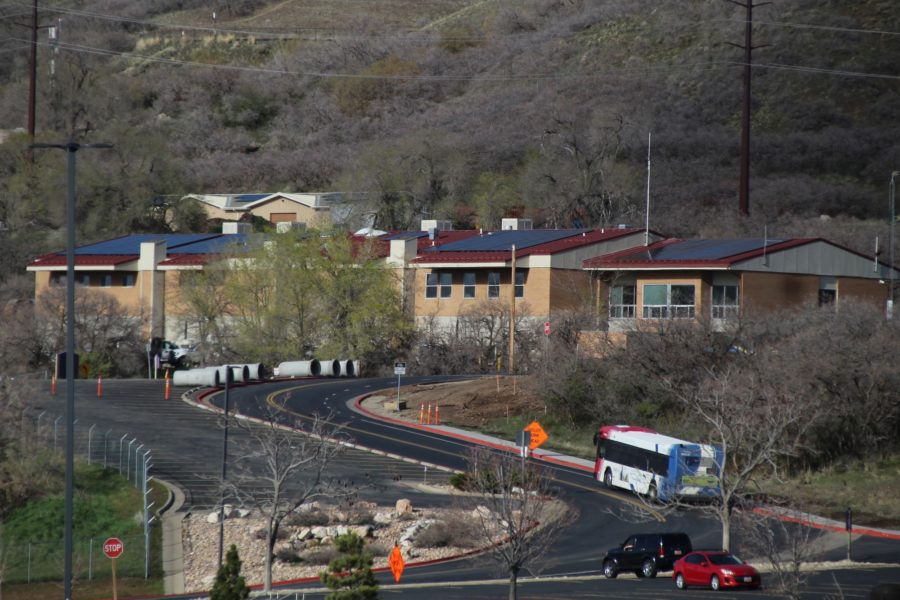Abby Payne was a 19-year-old sophomore at Weber State University when she was asked on a casual date by a friend of a friend. Three days later, she was on the date, walking down Historic 25th street in Ogden. The awkwardness of the first date was made worse by poor planning — her date didn’t buy her dinner or even seem have a destination in mind.
As they strolled past a lingerie shop, her date began asking her awkward sexual questions. He then jokingly forced her into the shop. Payne, very uncomfortable now, suggested they go home. On the way home, the man pulled the car over and sexually assaulted her, leaving bruises all over her body. As he dropped her off at her house later, Payne remembers, “I kind of didn’t even know what had happened.”
Nearly 7,000 students will experience sexual assault or rape while attending Weber State University, based on campus assault statistics from the Rape, Abuse and Incest National Network (RAINN) and the current student population. Payne was one of those 7,000.
This staggering number would lead most to believe that most universities have an efficient system in place to process rape kits, but accessing a rape kit as a college student is more complicated than most realize.
There are three reasons students may not understand how to acquire a rape kit on campus: (1) There are too many policies for the victim to be familiar with, (2) there are too many offices for the victim to travel to (often as many as five) and (3) there is insufficient education about sexual assault.
1. Sexual assault on campus is a mess of policies.
When someone reports a rape on campus, there is a labyrinth of legal or university-led investigations into the incident and a helpful but complicated support system for the victim through the campus victim advocate.

Legal Investigations
The investigations into a sexual assault can only be conducted if the victims report they have been assaulted.
Payne never reported her assault to law enforcement. She said, “I decided not to press charges, partially out of the shame factor. I just didn’t want to live it again. And I was terrified it would go to court, and somebody would tell me it was my fault.”
Kim Fischer, investigative reporter, evening anchor for ABC 4 and media advocate for victims of sexual assault, said schools differ in their rules about who the victim can report to. Some require the student to report to campus police, while other schools let the victim choose to report to the campus or local police department.
If a rape occurs on Weber State campus, it is under the jurisdiction of the Weber State Police. If the rape occurs off campus, it is under the jurisdiction of the local police department, but the victim can choose to also report to the Weber State police department.
Students can report, without naming themselves, to protect others on campus. The Campus Police Reporting Procedures Manual states, “The purpose of a confidential report is to comply with your wish to keep the matter confidential, while taking steps to ensure the future safety of yourself and others.”
University Investigations
Victims can request a school investigation — most common if the perpetrator is also a student, through the Title IX Office (also called the Affirmative Action/Equal Opportunity office).
Title IX is a legal statute requiring schools to investigate claims of discrimination or harassment. The office will investigate the incident not as a criminal offense, but as a violation of the university’s Harassment and Discrimination policy.
Barry Gomberg, the school’s Title IX investigator, said in an interview, “If either of the individuals have any formal relationship to the university and the alleged conduct took place on campus, then I think we would investigate … to determine what the level of risk that [the assaulting] individual posed to potential others, whether or not they violated university policy.”
The advantage of reporting to the Title IX Office is that the offending student will be dealt with swiftly — a luxury that the legal system cannot offer. The difference in speed is due to the standard of evidence required.
In a court case, investigators need to prove the defendant’s guilt beyond a reasonable doubt, but in a civil case, through the school, they only need a “preponderance of evidence.” This makes school investigations, and the following discipline of the assailant, move a lot faster than court cases, which helps the healing process of the victim.

Support for victims
Some victims, like Payne, seek support from resources such as the Women’s Center, the Health Center or the Counseling and Psychological Services Center before they ever think about reporting to law enforcement.
Payne first opened up about her assault to a counselor in the Psychological Services Center, after she couldn’t “be present” anymore, and “got sucked back into that moment” one too many times. “I was in pain all the time,” Payne said. “I kept imagining that he was following me, that he was everywhere I was, that I would turn around and see him.” Her counselor diagnosed her with PTSD.
Victims can also receive support through the Women’s Center and resources like Victim Advocate Paige Davies. Davies is the one who helps students understand this whole process. “I just help guide them and help provide support for whatever they want to do,” said Davies.
Gomberg called Davies, “an extremely knowledgeable source of support, who understands a lot about [the Title IX] office’s process, the police and prosecutorial process, even as it relates to domestic relations, how to get a restraining order, protective orders, connect with legal representation, which they might not otherwise be able to afford.”
The campus victim advocate is a helpful resource. However, the victim advocate cannot provide confidentiality. Turner Bitton of the Utah Coalition Against Sexual Assault said, “That’s essentially like throwing a big wet blanket on a survivor. And it prevents them in a lot of circumstances from disclosing that they have been assaulted.”
The advocate, of course, wants to and will keep the information confidential, but if another institution demands the information, the advocate legally cannot refuse, which may be the reason that only 1 in 6 victims uses victim’s services, according to RAINN.
Utah House Bill 251, “Campus Advocate Confidentiality Amendments,” will hopefully change that. “Basically what it would do is give the same confidential communications privileges or confidential protection to campus-based advocates as community-based advocates have,” said Bitton. “And that will go a long way in terms of increasing reporting because victims will feel safe to report on campus.”
Payne said it’s “ridiculous” and “too much runaround” to expect a college student to understand the ins and outs of these complicated sexual assault policies, especially after experiencing the trauma of a sexual assault or rape.

2. Getting a rape kit as a student can require up to five steps of contact and travel.
There are currently two options for getting a rape kit processed: a community center, such as Northern Utah Sexual Assault Nurse Examiners (with a trained Sexual Assault Nurse Examiner, or SANE Nurse), or a hospital.
SANE nurses can be paged by the police or by campus victim advocates like Davies. Victims might try directly calling the Ogden NUSANE community center, but they can “Leave a message and [their] call will be returned within four business days,” regardless of whether they call during normal business hours or after hours, as The Signpost did multiple times.
Hospitals are also not the best option. Bitton said, “In most cases, if you’re a victim and you go to a hospital, they require you to be admitted. And when you’re admitted to a hospital, they bill your insurance … the Utah Office for Victims of Crime generally will reimburse them.” The student has to foot the bill of thousands of dollars while that goes through, and it can cause problems of confidentiality when the insurance policy holder is notified of a claim.
If the victim knows about the Women’s Center (which Payne did not) and goes to the Women’s Center for help, Davies will page a SANE nurse, and the victim will have to drive to meet the nurse at the community center before the kit gets sent to the lab for testing.
Payne said she never would have gone to all of that effort because it is hard enough to talk to one person.
“There’s nothing you have to do to get into [the Counseling Center],” Payne said. She walked in, filled out a form and saw a psychologist ten minutes later. “And it took me two weeks to do that. So if you have to jump through all those kinds of hoops? Hell no. It’s not going to work. They have to have them on campus. It’s got to be accessible to students, or it’s just not going to help.”
Davies said that having SANE nurses be able to come to the campus would be helpful to “streamline the process” of getting a rape kit and ensure that victims wouldn’t have to worry, “Am I going to be put in the back of a squad car to go down there?”
So why can’t the nurse just come to the campus and collect the rape kit on campus instead of dragging the victim around to five different offices (sometimes in the middle of the night)?
Funding is a huge issue. The Student Health Center and the Women’s Center receive all of their funding from the school. Those community centers with the SANE nurses bill the Utah Office for Victims of Crime for all their expenses.
The confidentiality of campus resources is also a concern.

3. Students lack the knowledge of what to do if they are assaulted or how to prevent it.
Barry Gomberg said without hesitation that if he could change one thing about the way Weber State handles sexual assault, it would be to focus on prevention. “I’d like to see mandatory training for all students, instead of the current system, which is not enforced as vigorously as it could be and should be,” he said.
Weber State has a course teaching students what to do if they are assaulted, how to report a sexual assault, what to do if they see a friend assaulted and how to stay safe on campus. The program is called Haven, through the Safe@Weber Portal app.
What separates Weber from other schools, however, is that there is nothing motivating students to take this course. It is voluntary. That is why only one in five Weber students have taken it.
“Every school in Utah uses the same program, Haven, and most [other schools] have restrictions,” said Davies. “So if you don’t take it, you get a hold on your account, or you can’t get your financial aid, you can’t register for classes, your transcript won’t be released until you take it.”
The number of students who will experience rape or sexual assault on campus: around 7,000.
The number of students who took the sexual assault prevention course last year is around 5,000.
Making this training course mandatory would not familiarize students with all of the intricate details listed above, but it would at least inform them of a direction to take.
Payne said she would also like to see a section about sexual assault prevention and response added to the Weber State First Year Experience course.
These are only two options to start educating students about sexual assault at Weber. This research hopefully informs in some small way, but Weber State needs inform their students in a big way.
In Payne’s words, “Stuff is shitty, stop making it harder.”



